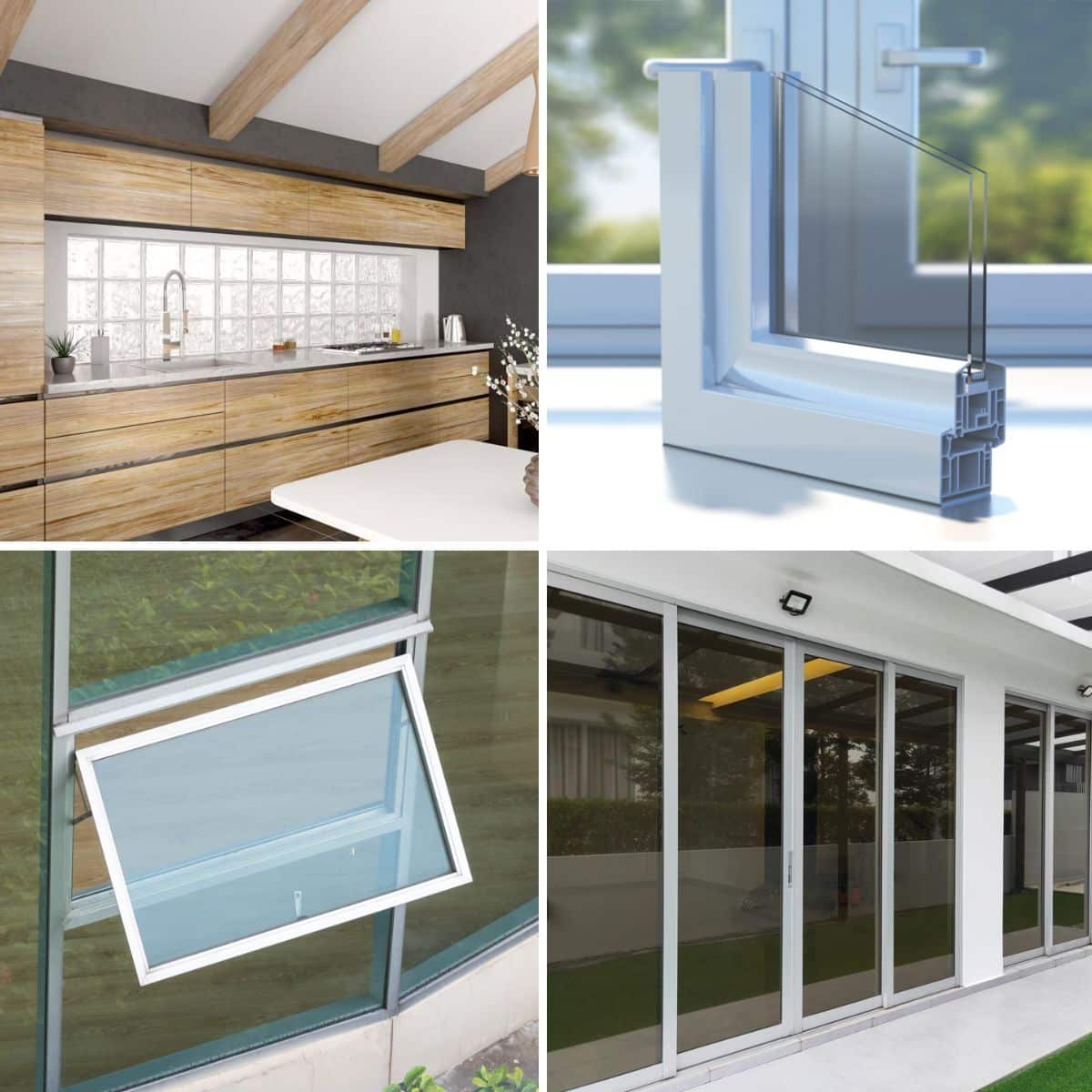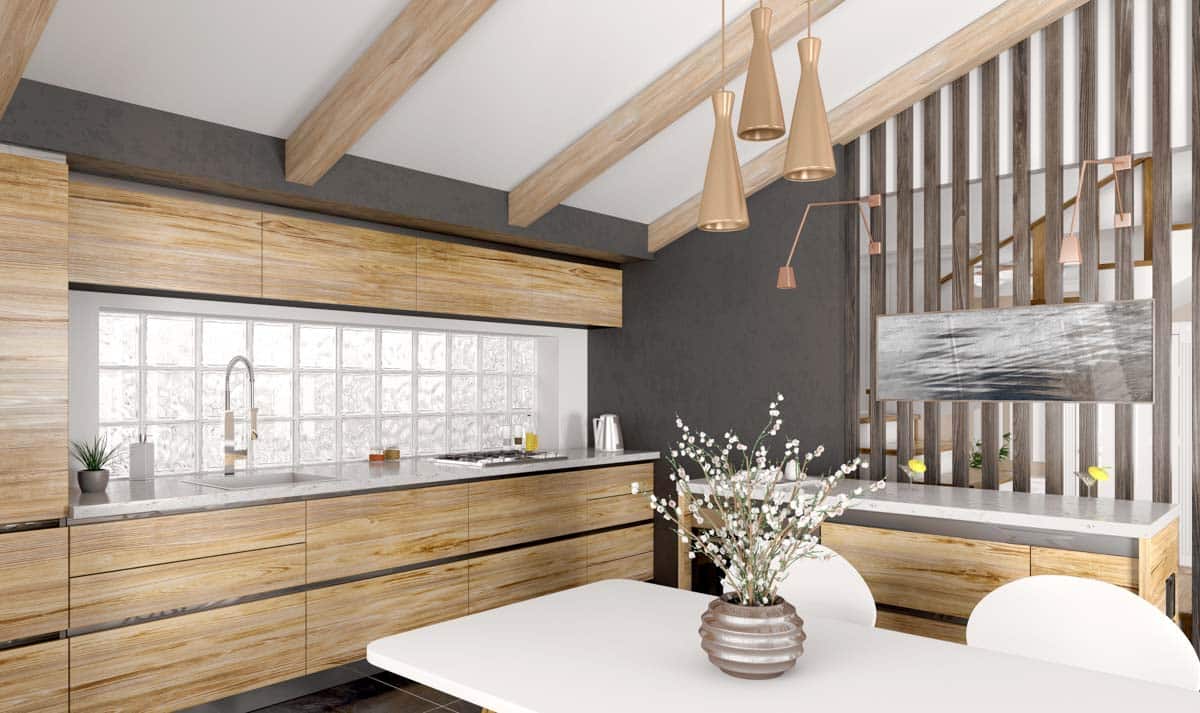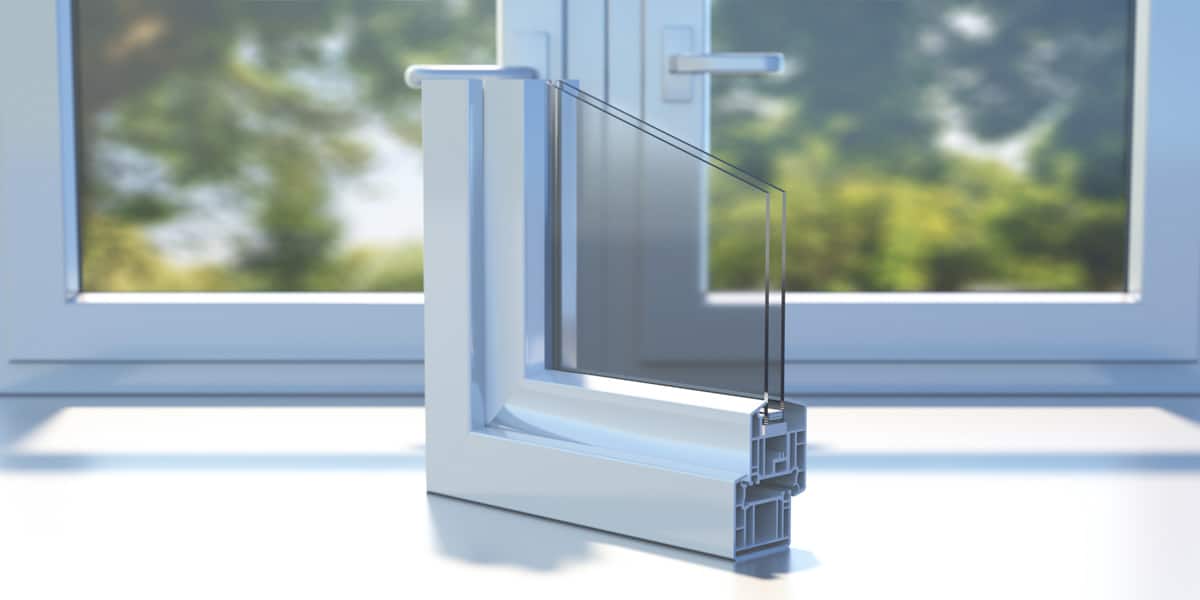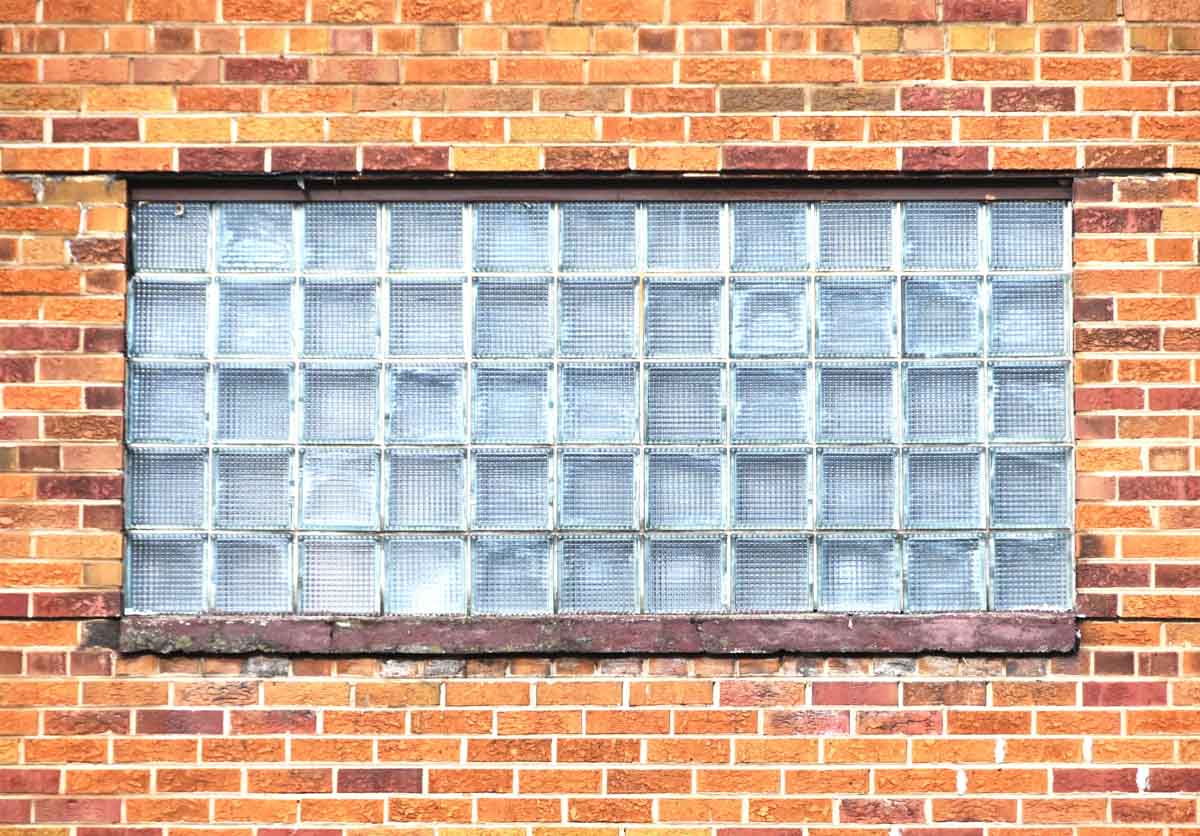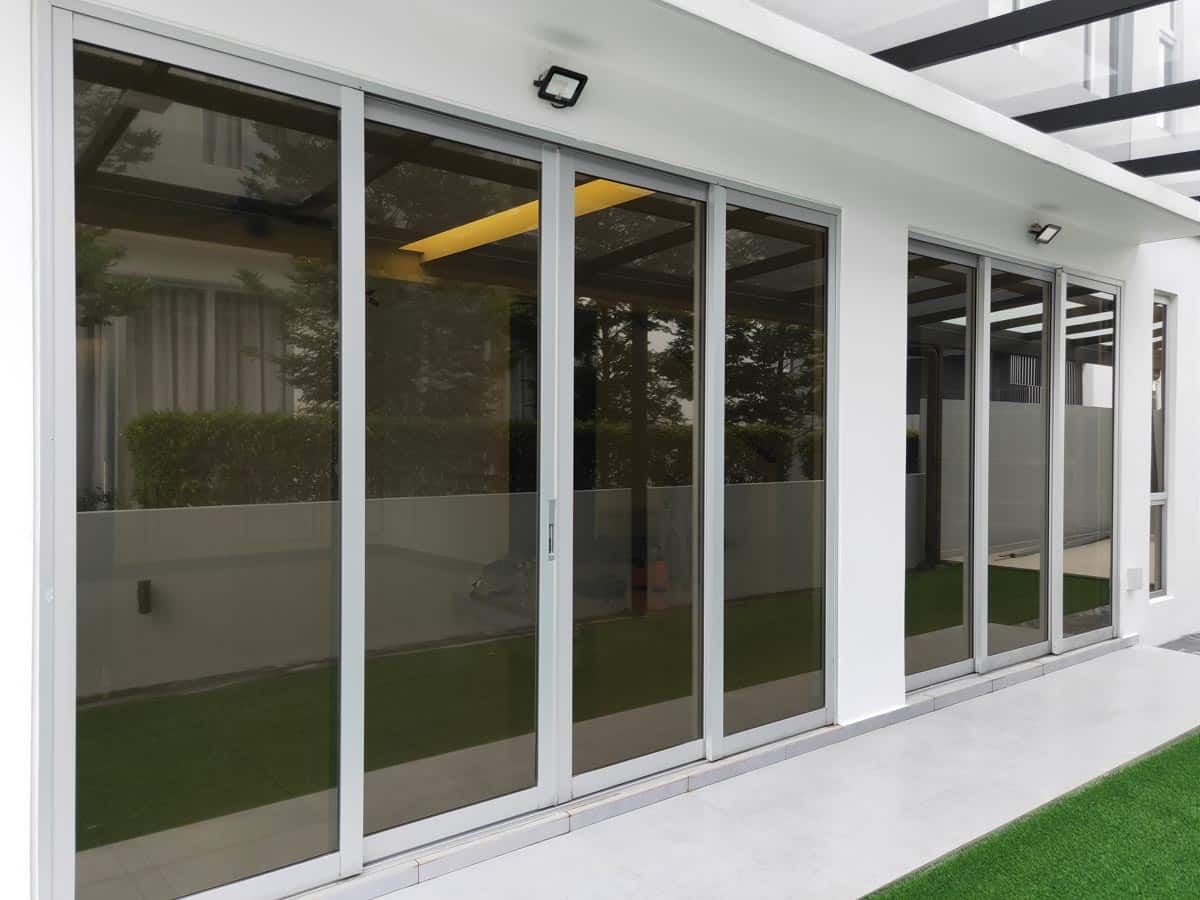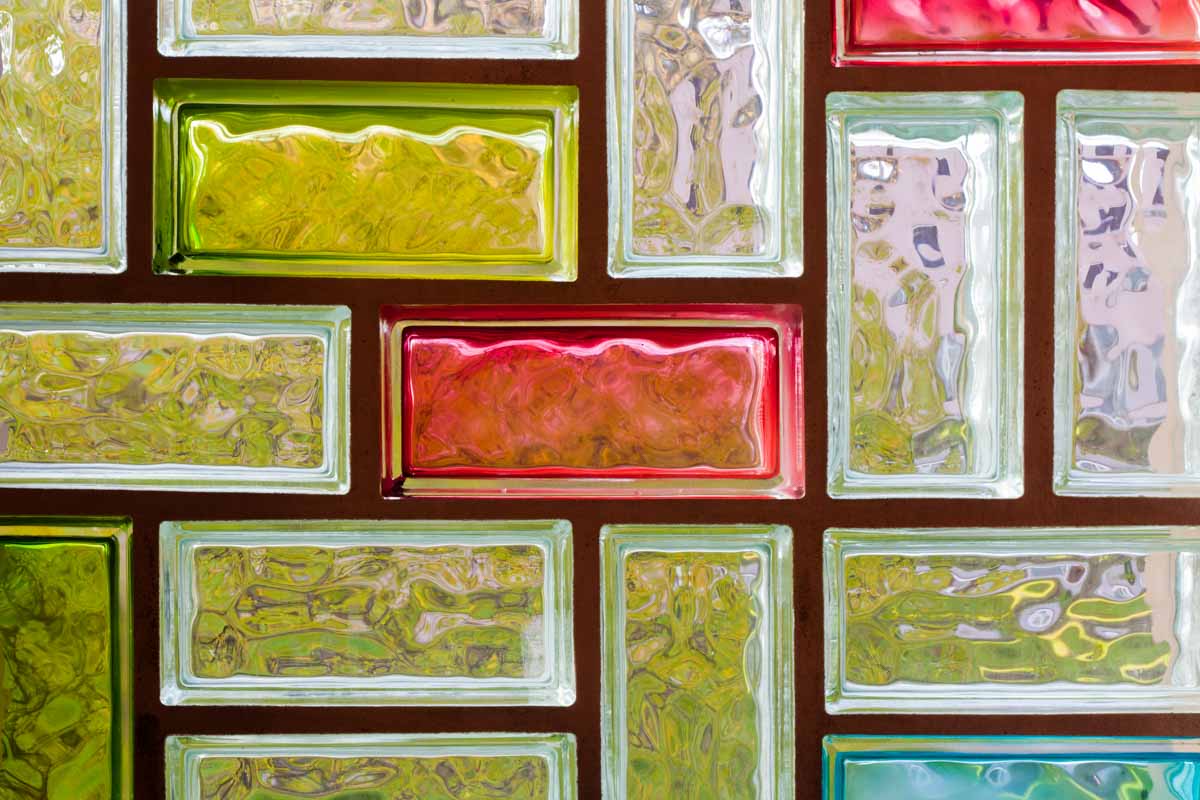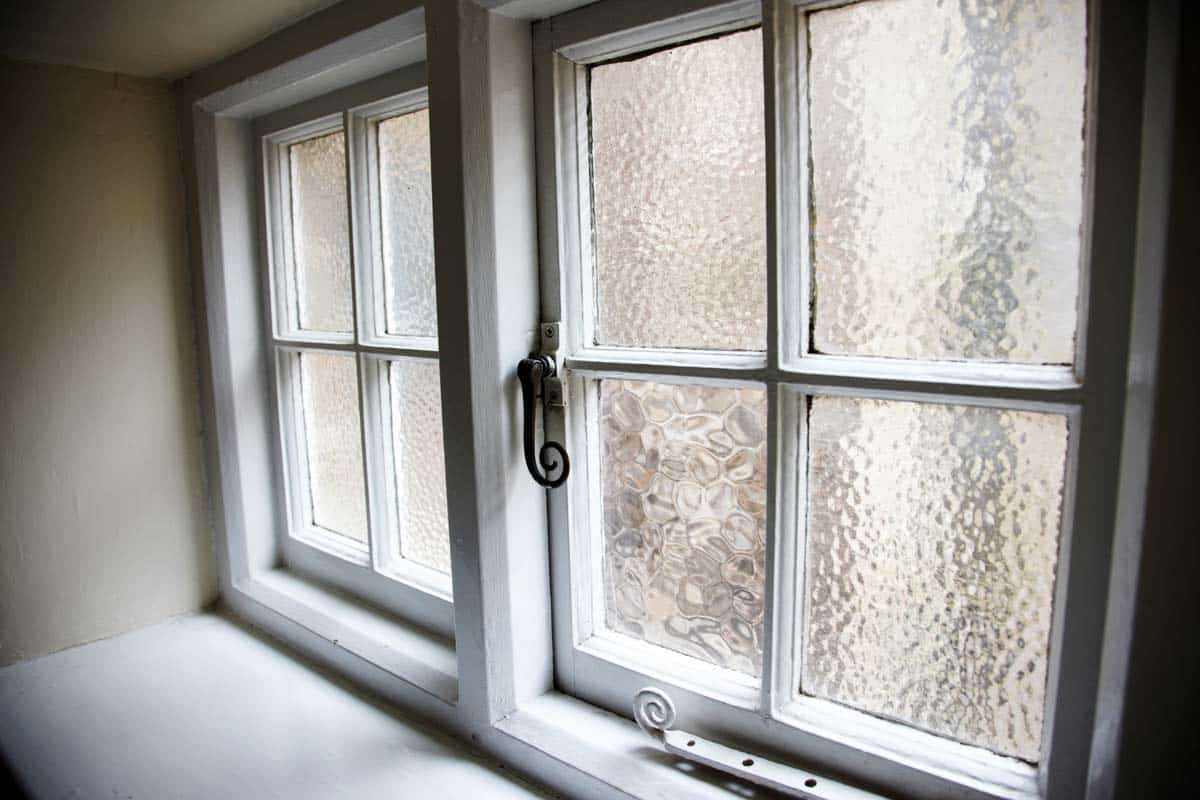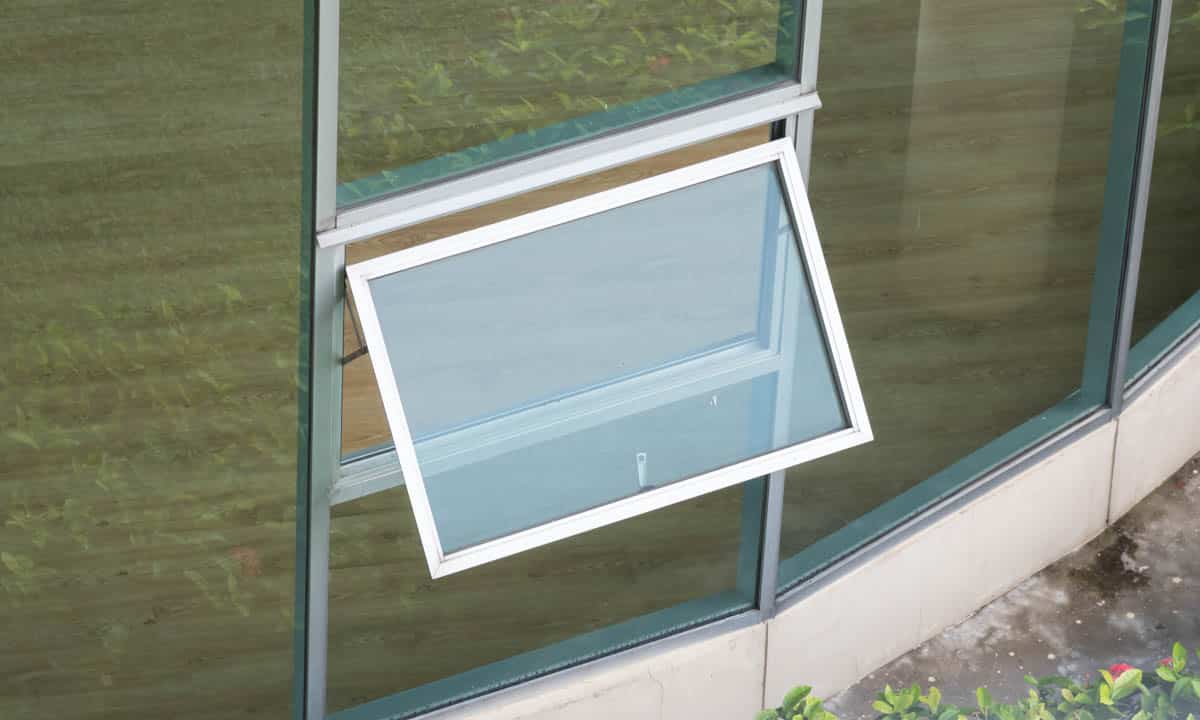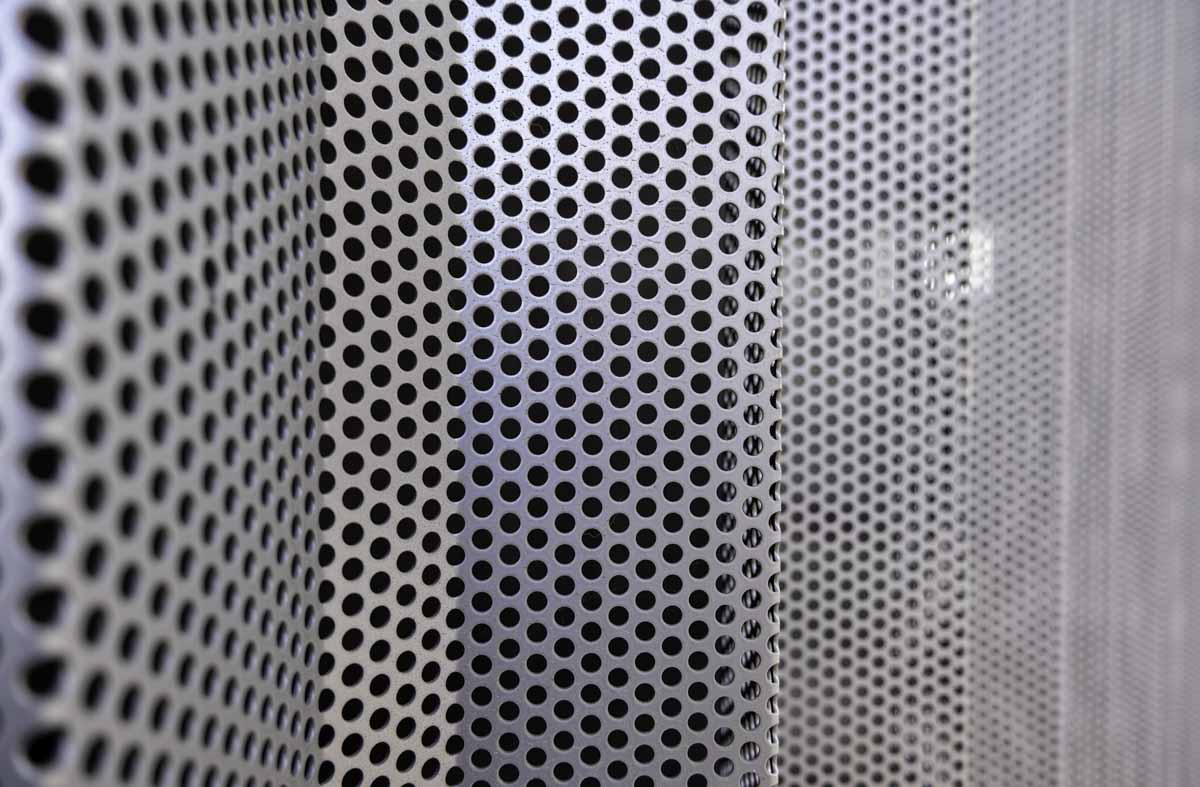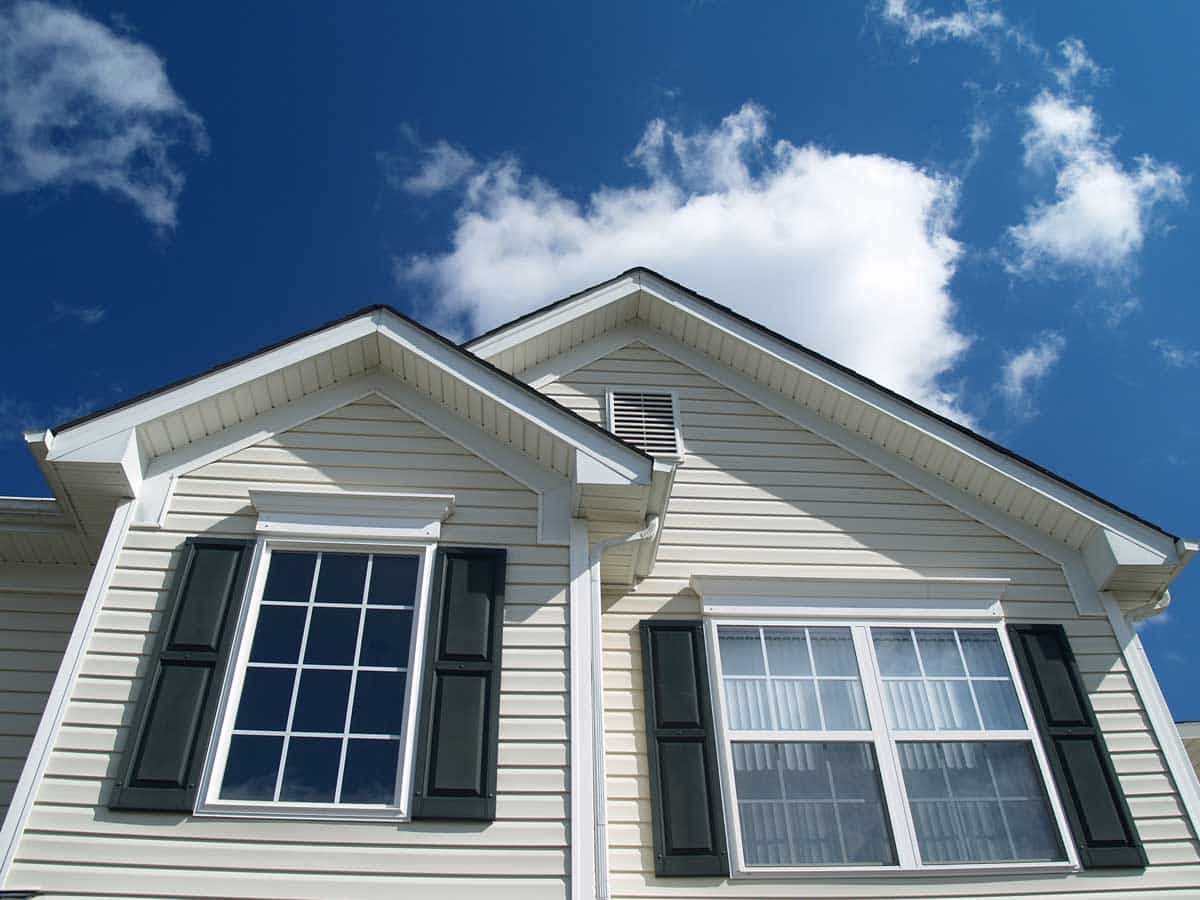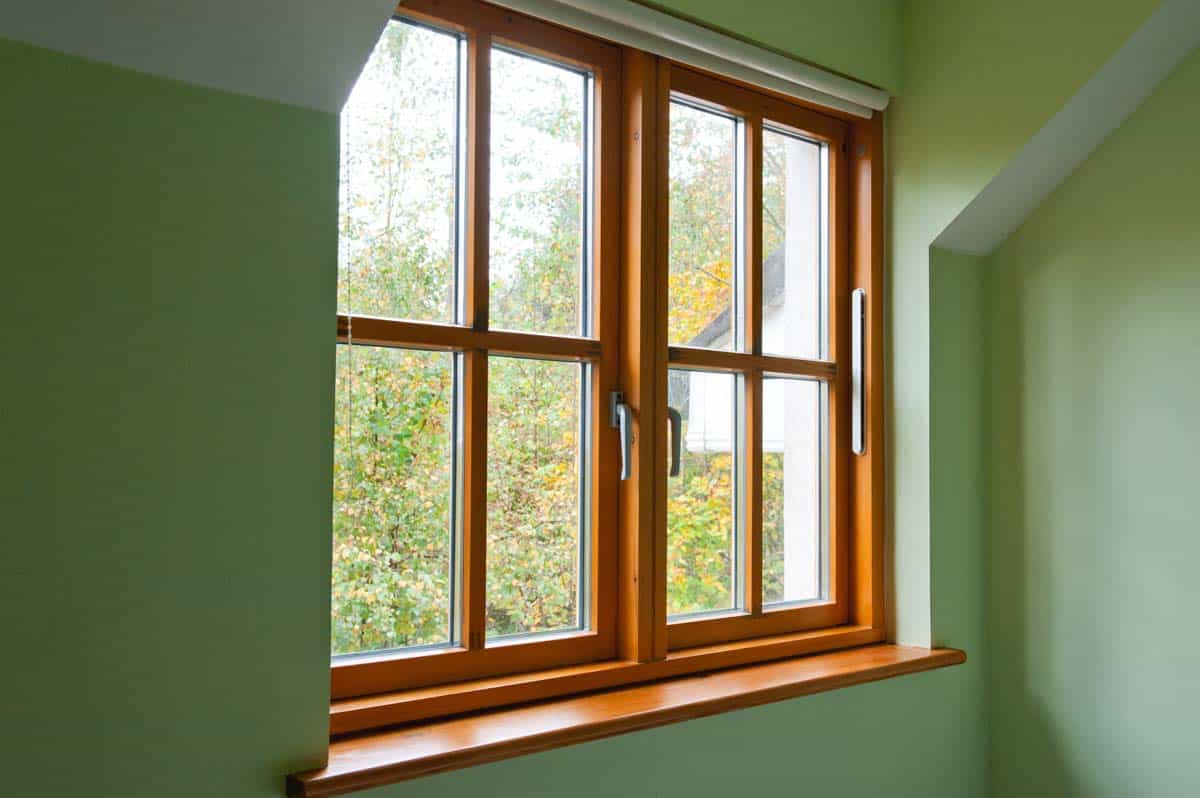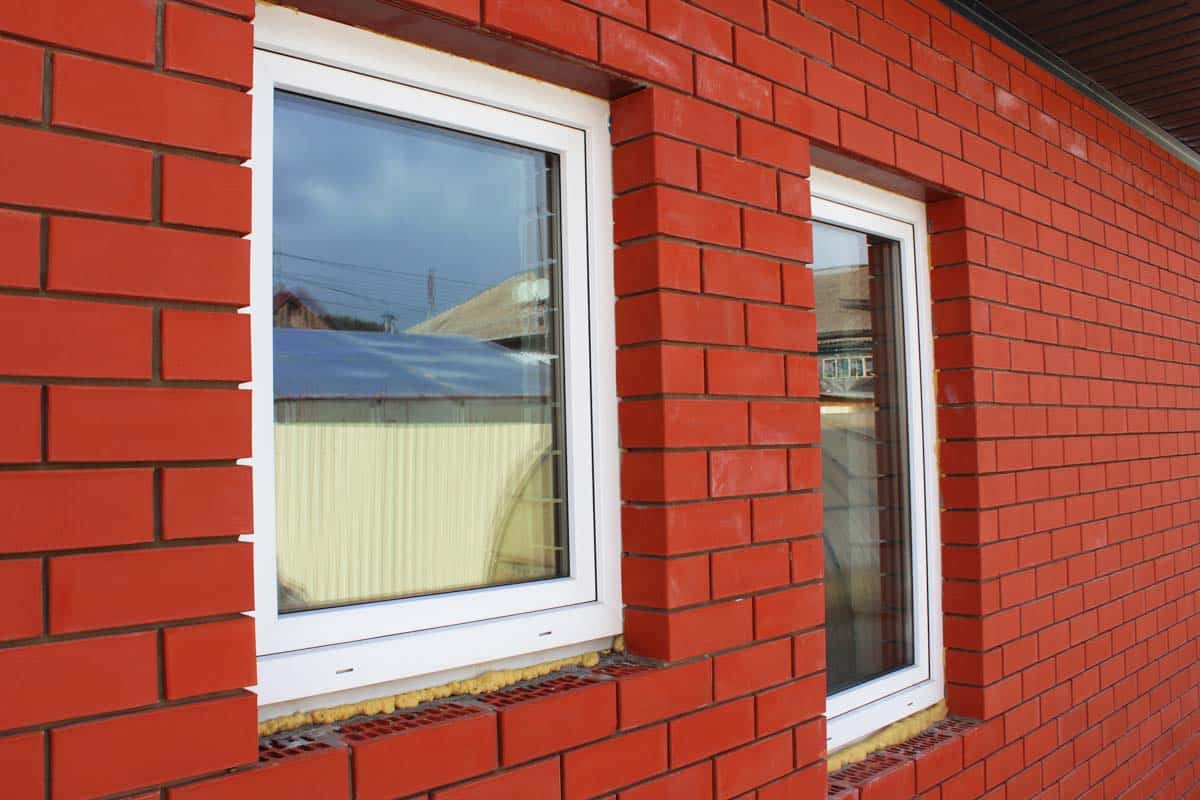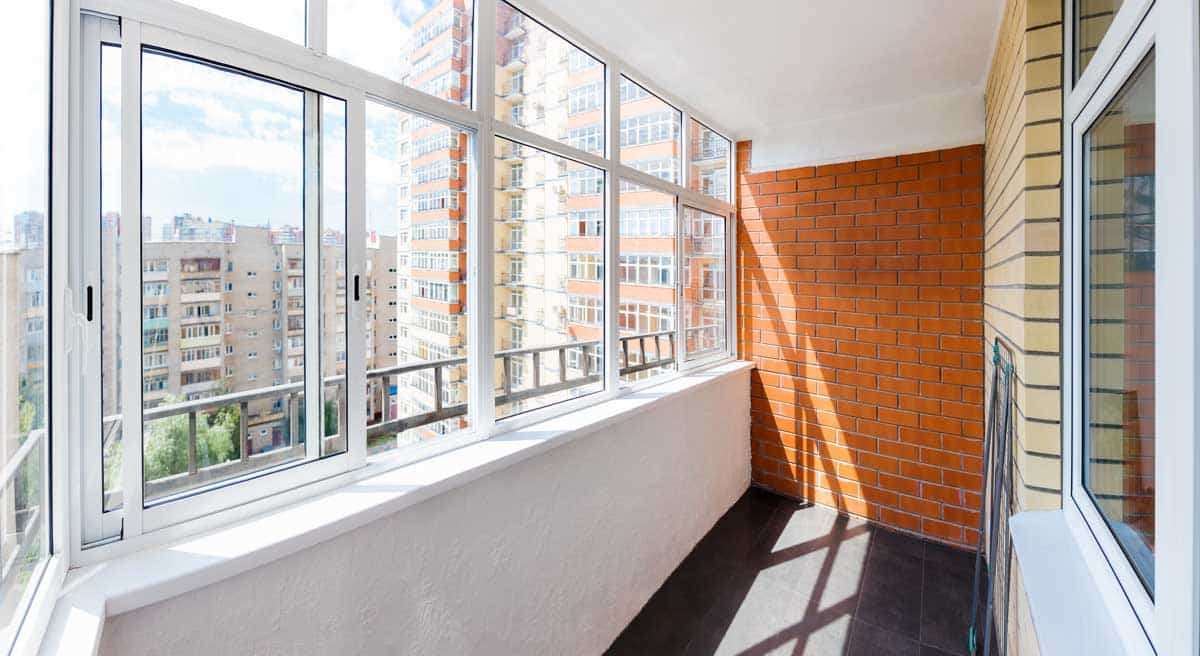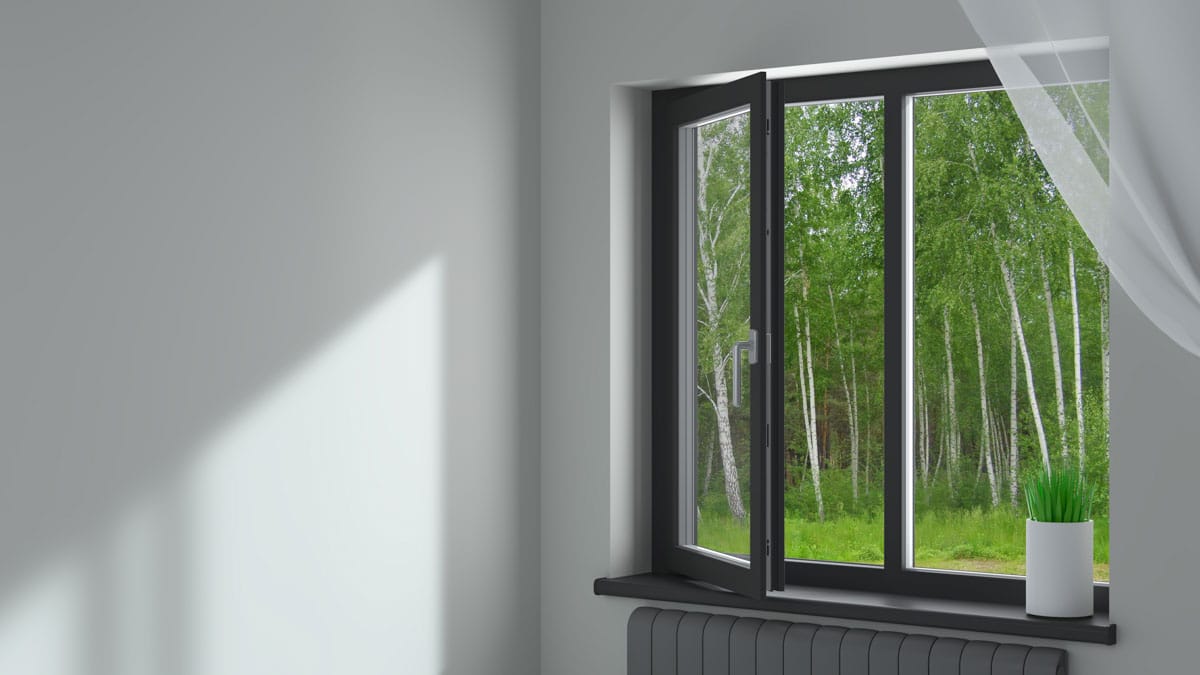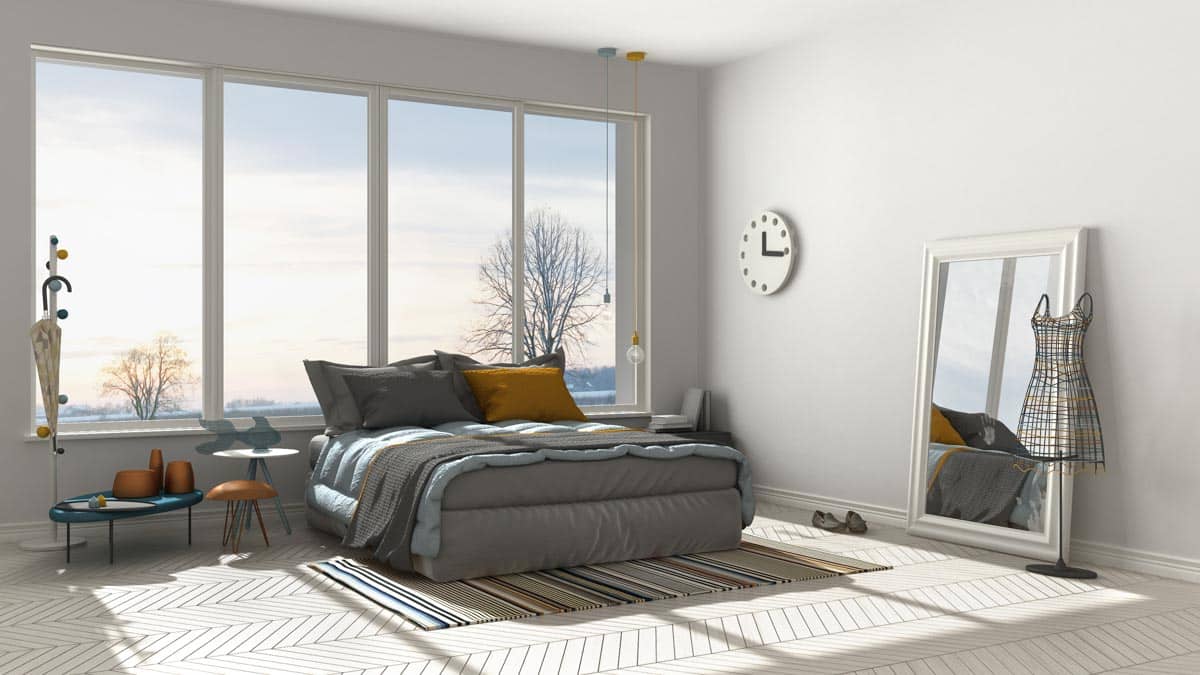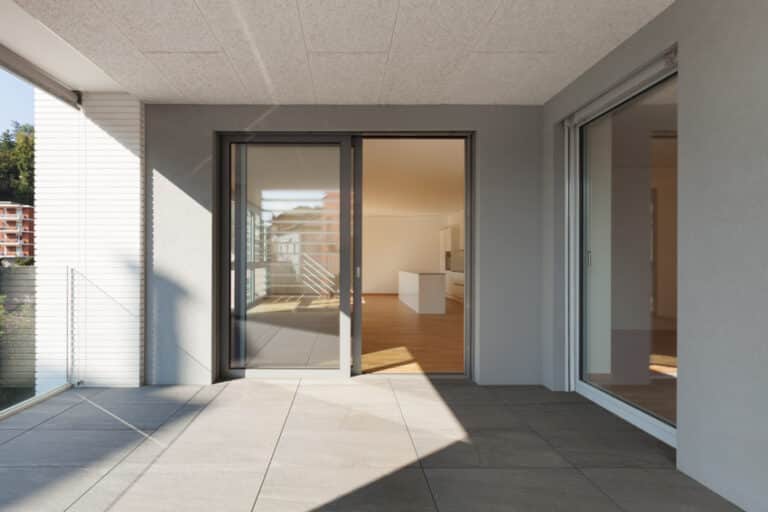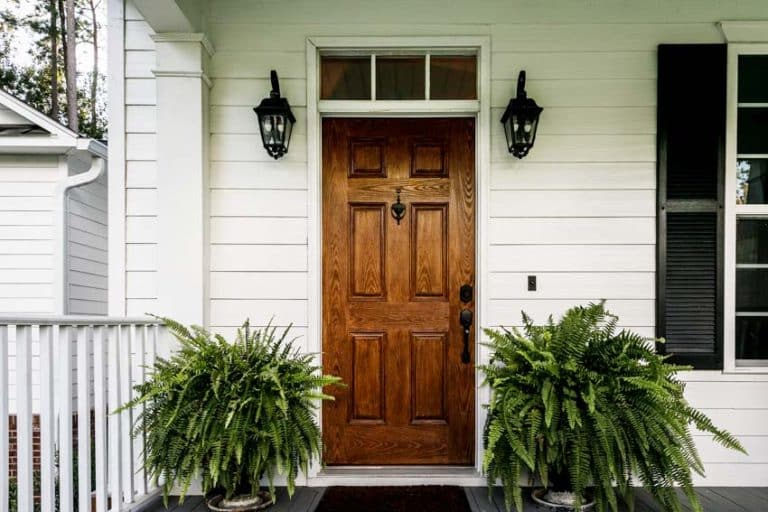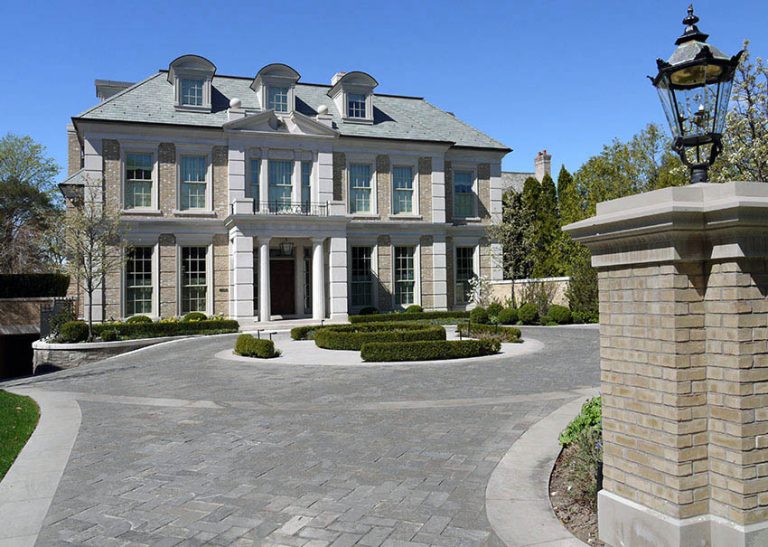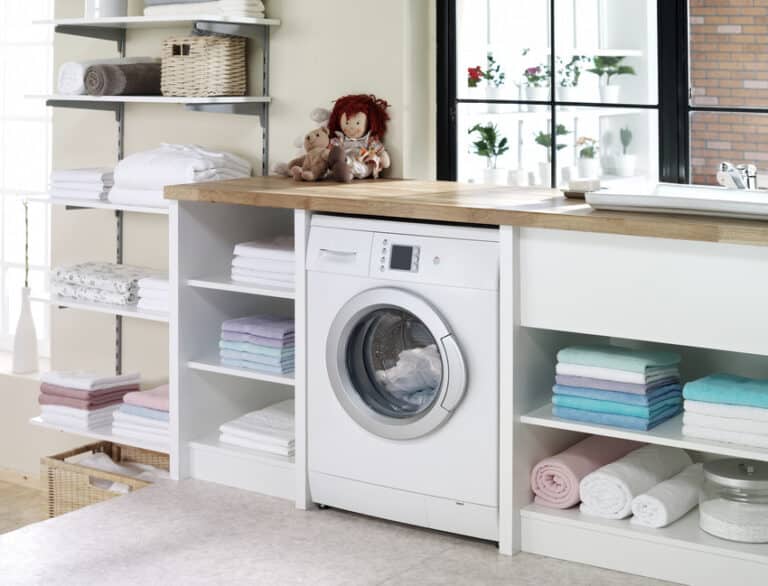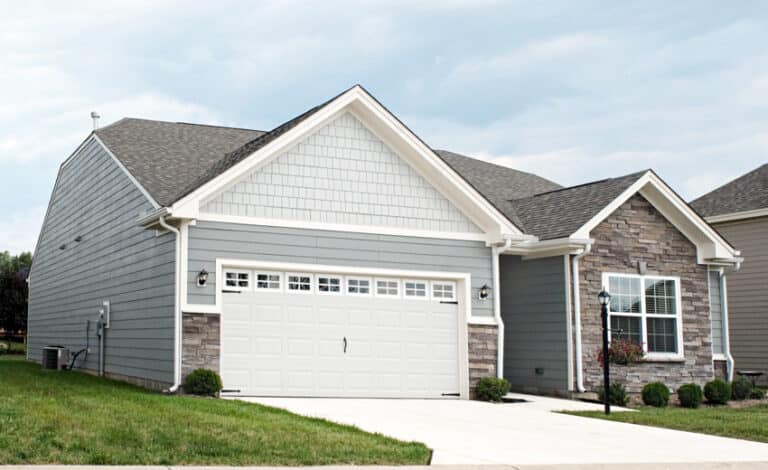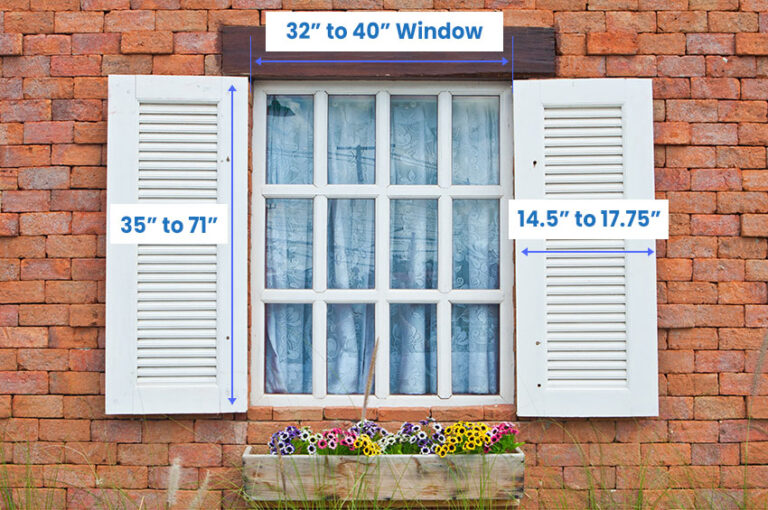14 Modern Alternatives to Glass Block Windows
Glass blocks windows were a popular shower divider in the 1930’s and 40’s and was also built to showcase facades. Today, the advancement of manufacturing and technology, alternatives to glass block windows have become possible, addressing the limitations of the traditional glass blocks.
Glass block windows are thick and can take additional space especially as interior partitions. For these applications, glass blocks will also need a stable foundation because of the weight. Often making it impossible to install on higher floors. The following are modern alternatives to glass block windows to enhance the style.
Acrylic Blocks
When looking for a lightweight version of glass blocks that also offer similar translucency and modularity, then the acrylic block is the perfect alternative. Stacked glass blocks can weigh from 16 to 25 pounds per square foot which requires a strong structural support.
Acrylic blocks or polymethyl methacrylate (PMMA) are 70% lighter than your glass blocks, making it possible to install an openable window. They are also easier to transport and install, which also means it has a faster lead time.
When it comes to installing glass block windows, there’s an important consideration according to Roger Murphy, president of Hy-Lite, a leading U.S. manufacturer. Murphy notes that acrylic block windows offer much more flexibility. “Since they’re up to 70% lighter than traditional glass blocks, acrylic versions can be used for both fixed and operable window styles like awning, casement, and basement hoppers that open and close.”
The reason they are lighter? Acrylic is a transparent thermoplastic made from synthetic resins rather than glass. “This composition allows for easier manipulation during manufacturing,” says Murphy. “In addition to being available in different sizes and shapes, acrylic blocks can be tinted or colored to block sunlight as needed.”
But the benefits don’t stop there. Murphy explains that with added insulating layers, acrylic blocks can actually be up to one-third more energy efficient than standard glass blocks. An advantage for homeowners looking to improve energy costs.
They also come with various colors and patterns providing flexibility to your preferred design. The embossed acrylic blocks can diffuse light while providing a level of privacy , eliminating the need for additional window treatments just like your traditional glass block windows.
The engineered plastic can be flame repolished or buffed to restore the window’s glossiness, unlike glass blocks that will require damaged blocks to be replaced, often requiring the entire panel.
A disadvantage of acrylic blocks is that it can get brittle over time and some products can turn yellow. Moreover, when subjected to heat PMMA can ignite or melt. The plastic material can also get damaged with certain cleaning agents.
When cleaning acrylic block windows use commercial cleaners specific for plastic materials or use a mild soap and water when removing accumulated dirt or debris. There are newer products of acrylic blocks that have polymers built-in to the acrylic block that inhibit UV rays preventing the material from fading or discoloring.
Fiberglass Reinforced Plastic
FRP or fiberglass reinforced plastic is a durable and lightweight composite material composed of polymer matrix strengthened with glass fibers. Due to its composition FRP or Glass Fiber Reinforced Plastic is corrosive resistant making it a great alternative to conventional window glass materials for projects that are near coastal areas.
It is also great for keeping away harmful UV rays from entering through the exterior. FRP is also chemical resistant, making it suitable for processing or treatment facilities exposed to chemical environments.
When it comes to temperature control, FRP provides good thermal insulation properties. These fiberglass windows also have good electrical insulation properties, which can be beneficial in electrical enclosures or applications where electrical conductivity needs to be minimized.
FRP offers flexibility in design as the material can be molded or formed into various shapes and sizes, allowing for design flexibility and customization. It can be manufactured to meet specific project requirements, including complex geometries or curved surfaces. This makes it a versatile material for a wide range of applications.
Fiberglass windows have come a long way, according to Matt Risinger, an Austin-based builder with over 20 years’ experience. “Fifteen years ago, they were available only in limited sizes, turned chalky from sun exposure, and came in just one color – white,” he says.
But today’s fiberglass options provide versatility and value. “Now you get custom sizes, durable UV-blocking coatings, a wider color selection, and even wood interior finishes,” Risinger notes. “With all these features at such a reasonable price, they’re hard to beat.”
In just over a decade, fiberglass has evolved from a one-size-fits-all basic product to a premium customizable option. The combination of visual appeal, low-maintenance durability, and affordable pricing checked all the boxes, making fiberglass panes an attractive choice for builders, renovators and homeowners alike, according to the seasoned pro.
Polycarbonate Blocks
When safety is a concern, polycarbonate blocks is an excellent substitute for glass blocks. Also termed as “theft-proof” glass, the polycarbonate material is 250 times more resistant to impact compared to glass and 30 times more durable than acrylic. There are even bullet proof grades available for polycarbonate blocks.
According to the materials experts at AcmePlastics, this polymer’s “high optical clarity makes it an ideal see-through substitute.” But polycarbonate’s advantages go well beyond its glass-like transparency. “It’s also six times lighter than traditional glass,” they explain. That’s a huge plus for applications where you need to cut down on weight.
Polycarbonate blocks are also lightweight, making them easier to handle and install. This characteristic can be advantageous for construction projects where weight considerations are important or in cases where retrofitting or replacing existing materials is required.
Their low flammability also makes the window blocks a great option for kitchen, garage, and other fire hazard areas. For a 380mm thick polycarbonate expect a 96% blockage of UV light and 100% UV protection for 360mm thickness.
However, the material is not safe from discoloration. Continued exposure from 5 to 7 years on average, hazing can happen and will usually discolor into a yellow tint over time. There are polycarbonate products that can be cleaned easily with bleach and water.
There are newer versions of polycarbonate blocks that have built-in UV resistors. This feature helps to reduce the harmful effects of UV radiation, preventing yellowing, degradation, or discoloration over time.
Switchable Privacy Glass
For versatility of use, switchable privacy glass allows users to switch from clear to opaque but translucent glass. This is possible due to the PDLC or polymer dispersed liquid crystal sandwiched between panels.
When turned off, the liquid crystal present along the panes scatter, giving the window its opaque appearance, and when turned on, the electrical charge aligns the PDLC providing the clear transparent look.
Most switchable privacy glass is popular for office or interior partitions. There are available PDLC films that can be easily installed over existing window dividers. For complete set of windows, tempered or laminated glass are typically used integrated with the PDLC film.
When in opaque mode, switchable privacy glass can block a significant amount of sunlight, reducing heat gain and the need for excessive air conditioning. This can contribute to energy savings and a more comfortable indoor environment. Most switchable privacy glass has a sleek and continuous surface making it a perfect minimalist element.
Switchable privacy glass can also provide sound insulation benefits. When in the opaque state, it acts as a barrier to block sound waves, reducing noise transmission between different areas or from outside sources. This feature can be beneficial in environments where acoustic privacy is important, such as conference rooms or healthcare facilities.
Venetian Glass Bricks
More of a decorative element but provides the same privacy as glass block types of windows, Venetian glass bricks are typically made from Murano glass, which is a type produced on the island of Murano, near Venice.
Thus, Venetian glass bricks are also called Murano. Murano glass is known for its clear appearance, vibrant colors , and high quality. Skilled craftsmen of Murano are renowned for their expertise, where they are able to create intricate designs. A famous project that utilized decorative glass bricks is the Chanel’s flagship store in Amsterdam designed by MRDV.
Venetian glass bricks are designed to allow the transmission of light while providing varying levels of privacy. Its translucent properties allow diffused light to pass through, creating a soft and inviting ambiance.
They can be used strategically to enhance natural lighting or to introduce artistic lighting effects. The standard size of Venetian glass bricks is 7 5/8” x 3 5/8” x 2 ¼” with and average weight of 5.5 lbs.
Resin Panels
When opting for an artistic window install, resin panels is a great option. Aside from the commercial resin panel windows, owners can create a DIY resin cast window or door. A craftsman can also customize resin panels or bricks where particular colors, transparency, shape, color thickness and size can be specified.
They can also be fabricated with embedded objects, textures, or other decorative elements to create unique visual effects. There are certain resin panels that provide excellent acoustic properties that help absorb or diffuse sound waves coming through a room.
This makes them suitable for applications where sound control is desired, such as homes along busy streets or act as a partition for office setups.
Resin windows are more popular for DIY projects and glass are more commercially successful but resin can be a great alternative for glass blocks when looking for privacy windows. The limiting factor is that resin does not have good insulation.
Photovoltaic Glass
Another tech-advanced material that can substitute for glass blocks is photovoltaic glass. Photovoltaic glass is able to generate electricity by converting sunlight into electrical energy using PV cells embedded within or applied onto the surface.
Thus, named solar glass glazing. The PV cells capture photons from the sunlight and convert them into direct current (DC) electricity. This enables the glass to produce clean and renewable energy on-site.
Photovoltaic glass is designed to be transparent or semi-transparent, allowing natural light to pass through while still generating electricity. Depending on the specific product and design, photovoltaic glass can vary in transparency levels, from fully transparent to semi-translucent.
This property makes it suitable for applications where both energy generation and visibility are desired. Windows that are expansive or that cover a larger area can retain heat or absorb heat depending on the material. With photovoltaic glass, it collects usable energy while maintaining a thermally controlled environment.
Perforated Metal Screens
When translucency is not an issue and is more of a privacy issue, perforated metal screens can be used as an alternative to glass blocks in certain applications. They provide privacy, security, and ventilation while still allowing some light to pass through.
A unique advantage of perforated metal screens is that they provide excellent airflow and ventilation capabilities. The perforations allow air to pass through the screen, making them suitable for applications where airflow is necessary, such as building facades, cladding, sunscreens, or mechanical enclosures.
Perforated metal screens are panels or sheets of metal that have a pattern of small holes or perforations throughout their surface. These screens are commonly made from metal materials such as stainless steelor galvanized steel.
Perforated metal screens offer various advantages and applications in architectural and design projects and also come with a variety of perforation shapes. The most common is the circle and hexagon shaped holes.
Vinyl Windows
Vinyl windows in truth become very famous because of its cost-effectiveness, undeniable energy-efficiency, and ease of maintenance henceforth making it a reliable alternative to glass block windows.
What makes vinyl windows extraordinary and dependable is their lightness as the framing of their glass pane is either made out of pure PVC (polyvinyl chloride), which is a thermoplastic polymer that contains chlorine in it. Also, the vinyl windows’ panes are usually set in a steel-reinforced framing.
The Benefits of Vinyl Windows: Lots of homeowners and design enthusiasts love them for many reasons. First off, they’re like the budget-friendly superheroes of windows, stealing the spotlight from other favorites like fiberglass and wood. They don’t come with that whole “maintenance marathon” that other types sometimes bring.
Unlike their wooden counterparts that demand fancy sealing and painting sessions, vinyl windows are low-maintenance. They’re all about that no-paint and no-refinish lifestyle – just a quick freshening up and they’re good to go.
Vinyl windows are like these energy-saver glass block alternatives. They’ve got excellent insulation properties, especially when they have those multi-chambered frames that trap air and boost the coziness of your place. You save on energy and those utility bills will be decreased as well.
If you’re all about making your windows match your style, a vinyl window is a great option. They come in all these wide selections of colors, designs, and sizes. So you can totally achieve that personal touch and make your place look exactly how you want it.
The Drawbacks of Vinyl Windows: Vinyl windows bring a broad variety of cool designs and colors to the table. However, in actuality, when it comes to playing with paints and matching vibes or curtains, wooden windows may have an edge over vinyl designs. Vinyl windows are born with their own style and usually don’t need a makeover. Some homeowners, though, might prefer a bit more painting magic.
When things get very hot outside, vinyl windows might possess a little downside of their own – they are expanding when they are hot. That downside can mess with their ventilation moves and even make them twist a bit. In freezing cold places, vinyl could get a little extra brittle and start to crack.
While vinyl windows are efficient alternatives, they don’t exactly win the longevity contest. They might not hang around as long as the other alternatives like fiberglass or wooden windows. And let’s not forget about those pesky UV lights – they can kind of mess with vinyl’s appearance over time.
Wooden Windows
Wooden windows are among the traditional designs – they have been a favorite option for ages and still bring that timeless vibe. They are like the vintage alternative to those glass block wonders, and their natural, rustic flair is like a one-of-a-kind work of art.
These wooden windows, with their sturdy frames and those beautiful glass panes nestled within. It’s like a perfect blend of nature and architecture – fitting in seamlessly with all kinds of home looks.
The Benefits of Wooden Windows: Timeless aesthetic and ease of customization are among the primary advantages of wooden windows. Whether your residence uses a contemporary, farmhouse, or modern house design, wooden windows can ideally accentuate it. This is their primary advantage over glass blocks, which do not give that organic vibe in your house.
Aside from that, wooden windows offer natural insulation capabilities, which is highly efficient in regulating indoor temperatures and decreasing heat. And when correctly and thoroughly cared for, wooden windows can last for decades.
The Drawbacks of Wooden Windows: Even though wooden windows are durable and long-lasting, they are quite challenging to maintain. Regular staining, painting, and sealing are usually necessary with wood surfaces to protect them from rotting, pest infestations, and moisture damage.
Additionally, harsh environmental elements can badly affect wooden windows, leading to decay and cracking. Due to this issue, wooden windows may result in premature damage. Ultimately, these glass block window alternatives are customarily on the costlier side; maintenance, labor, production, and installation costs of wooden windows are normally expensive.
Fiberglass Windows
Fiberglass windows may not be a popular window option in certain countries and communities, but for some, their popularity starts to take off due to their durability and versatility.
Fiberglass windows are composed of glass fibers that are embedded in a polymer resin, which leads to a lightweight and virtually unbreakable structural formula.
The Benefits of Fiberglass Windows: Incredible durability is the main benefit of products made out of fiberglass. This immensely resilient glass block window alternative is highly resistant to various environmental factors, which include insects, rotting, and water damage. This means that fiberglass windows have exceptional longevity compared to other materials in this list.
Since fiberglass windows are highly durable and warp-, fade, and crack-resistant, they do not necessitate thorough upkeep. So, these glass block window alternatives can be installed without the need for periodic refinishing and repairs.
Soundproofing properties are also the forte of fiberglass windows, hence they are suitable for music studios or any room within the house that value noise-free environment.
The Drawbacks of Fiberglass Windows: Due to the unbreakable and low-maintenance qualities of fiberglass windows, the material itself and installation cost are quite costly. Nonetheless, their long-term durability and energy-saving capabilities make fiberglass options a great investment.
Moreover, fiberglass windows, since they are a slightly newer window option, their color selection may be limited, which restricts homeowners when it comes to design customization.
Aluminum Windows
Aluminum windows are another preferred glass block alternative due to their more modern and more industrial look as well as their lightweight and corrosion-resisting capabilities.
This window material is very useful for architectural purposes, and nowadays, aluminum windows maintain a reputable image because of their distinctive appearance, strength, and eco-friendliness.
The Benefits of Aluminum Windows: Because these alternatives are very lightweight and versatile, installation and handling are indeed a breeze.
They can be effortlessly installed in different types of houses and are ideal for massive window apertures. Their versatility also enables for a vast range of configurations.
Furthermore, special types of aluminum windows underwent advancements in thermal break technology, so these glass block window alternatives now provide improved insulation properties. Plus, aluminum is a recyclable metal, making it an eco-friendly option and is ideal for homeowners who value sustainability.
The Drawbacks of Aluminum Windows: Talking about traditional aluminum windows, most of them do not come with thermal breaks that can efficiently conduct coldness and heat, thus making them less energy-saving.
Plus, due to the material’s thermal conductivity, aluminum may be susceptible to frost formation and condensation, especially in low-temperature areas.
Acrylic Windows
Acrylic windows are a competitive glass block window alternative as they are also lightweight and shatter-resistant. These windows are made out of PMMA (Polymethyl Methacrylate), which is responsible for bringing pure transparency and clarity to your house.
The Benefits of Acrylic Windows: Impact and shatter resistance are the fortes of acrylic windows, making them a safer option when compared to conventional windows. This unique feature makes acrylic windows a great option for houses that are situated in areas prone to storms and earthquakes.
Another amazing point is that aside from these windows being impact-resistant, they maintain their benefit of being lightweight, making them an easy choice for bigger installations, such as for floor to ceiling window treatments.
Moreover, these glass block alternatives offer exceptional UV resistance, which helps in preventing surface discoloration or yellowing.
The Drawbacks of Acrylic Windows: Scratches are the main enemies of acrylic surfaces, so it is not wise to clean them using abrasive materials or harsh cleaning solutions. Plus, acrylic windows have a lower melting point in comparison with glass, henceforth they are prone to heat damage caused by high temperatures or direct fire.
Thermal Pane Windows
Thermal pane windows, commonly referred to as insulated glass, are generally equipped to enhance energy efficiency by applying two or more panes that are separated by a high-quality spacer and infused with insulating gasses like xenon, argon, or krypton.
The Benefits of Thermal Pane Windows: As the name specifically implies, the primary perk of this glass block window alternative is its stabilized and improved thermal efficiency.
The reduction of heat transfer in the thermal pane windows is immense, which greatly contributes to a cozier indoor atmosphere and minimized energy consumption. This also leads to huge savings in energy costs.
Moreover, because this window uses dual glass panes and gas layers with insulating properties, the noise transmission is also decreased. So if your house is situated in a noisy neighborhood, the installation of thermal pane types may be beneficial.
The Drawbacks of Thermal Pane Windows: The manufacturing and installation of thermal pane windows are very expensive due to the inclusion or precise sealing and insulating gas layers.
And in case of failure or damage of the thermal glass pane unit, the replacement may be complicated because even if the damage is only minor, it would be required to replace the entire window. Thermal panes cannot be replaced individually.

